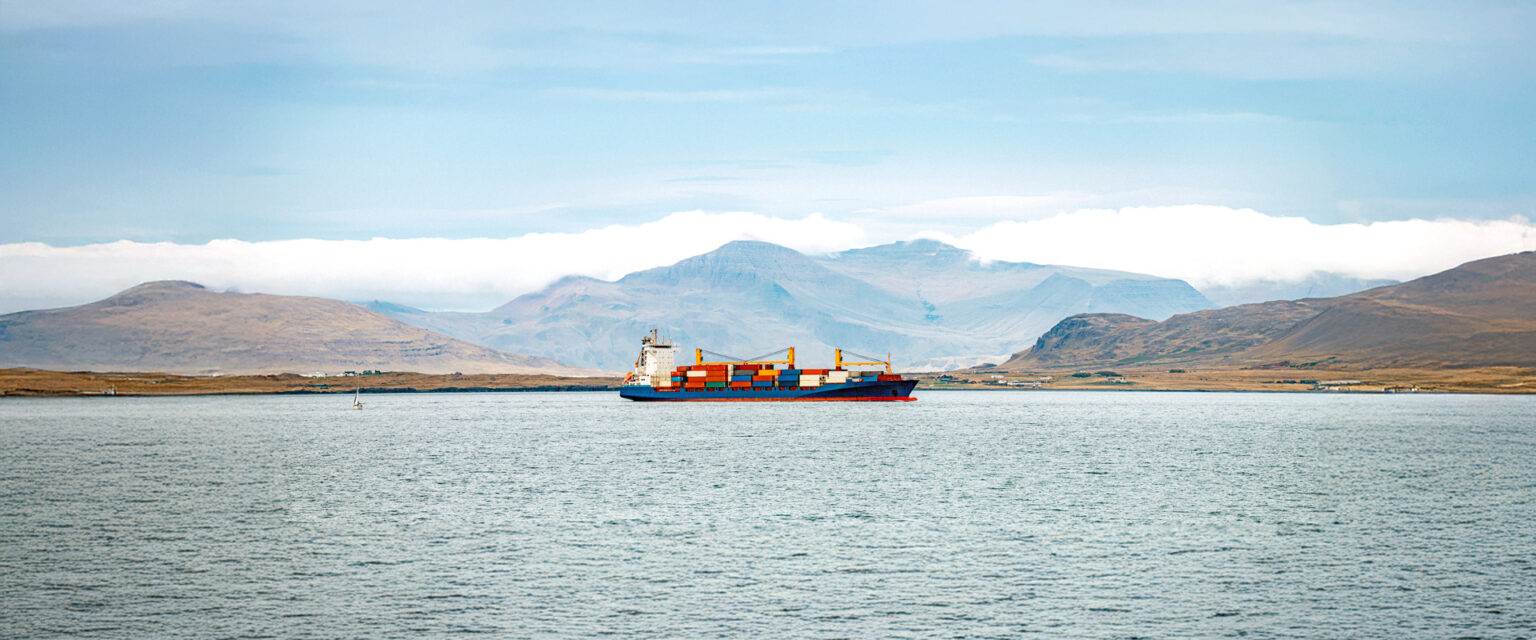The railway industry might not seem like a hotbed of cutting-edge technological innovation, but there is much to learn from Canadian National Railway.
With no navigable waterways running east to west in Canada, rail is arguably the only viable option for moving large quantities of freight around the country, especially during Canada’s harsh winter months. While trucking companies rely on governments to maintain roads, railway companies are responsible for maintaining their own infrastructure. A safer track means a more profitable business. We believe that Canadian National Railway (CNR), a part of our Global Quality Growth Strategy, smartly employs artificial intelligence (AI) and other technologies to improve network safety and efficiency, making it an attractive investment opportunity in this sector.
Monitoring the train
CNR’s investment in Automated Inspection Portals (AIP) dramatically enhances its ability to monitor and respond to problems arising from wear and tear on its trains. Trains drive at full speed through one of seven AIPs placed around the network while on their normal routes. Ultra-high-definition cameras with panoramic lenses capture 360-degree footage of the train and undercarriage, assessing its maintenance needs in real time.
If the software detects anything that requires attention, engineers are called to the train at its next stop to resolve the issue before it causes a breakdown and additional disruption to the service. AIPs can also be adjusted according to the season, with smaller issues treated with more urgency in winter, when they are more likely to lead to problems. This technology has already helped to reduce the number of accidents related to railcar defects.1
[I]t takes foresight — and vision — to use technology to improve and replace established processes that have been in place for over 100 years. Once industry leaders like CNR raise the bar, technologies tend to be quickly adopted by competitors, becoming the industry standard.”
Monitoring the track
AI is also a vital component in CNR’s Autonomous Track Inspection Program (ATIP), which allows the company to increase the frequency of track inspections across the network twentyfold.2 An additional boxcar is added to a train delivering its normal service. Lasers and specialized photography equipment scan the tracks and the ground beneath them, identifying problems that could cause accidents or delays before they happen.
ATIP uses heat and acoustic sensors to identify faulty bearings, a leading cause of derailments.3 Bearings heat up and can make a shrill sound when they are failing. CNR previously deployed trucks and human engineers to monitor railway tracks manually, which was more expensive and less effective at identifying potential problems.
ATIP has already led to a more than 93% reduction in track exposure, improving network safety.4 The tech is currently in its fourth iteration, having been first implemented in 2019 and updated in 2020, 2022 and 2023. More investment is due to follow, with new functionality being rolled out in coming months that will allow the system to see into the substrate to identify potholes or deficiencies.
Between ATIP and other sensors deployed across the network, CNR now has over 24 million data points per day to track.5 AI allows CNR to make sense of this overwhelming influx of data, identifying correlations, drawing conclusions and directing employees to where they are needed.
Investing across the network
CNR leverages a broader suite of technology investments designed to improve network safety. For example, Air Repeater Cars deal with the extreme cold of Canadian winters, circulating warm air to improve the effectiveness of braking systems at low temperatures. With this technology, CNR can operate full-length trains at temperatures as low as minus 40 degrees Celsius.
Elsewhere, motion sensors warn employees working on tracks when trains are coming their way and notify other staff when engineers are anywhere near sections of track. Technology like this also improves network safety and minimizes delays to train schedules.
All of these investments may seem like table stakes, but it takes foresight — and vision — to use technology to improve and replace established processes that have been in place for over 100 years. Once industry leaders like CNR raise the bar, technologies tend to be quickly adopted by competitors, becoming the industry standard.
CNR demonstrates the extent of AI’s potential to influence the entire economy. AI can handle dangerous tasks safely and laborious tasks quickly, as well as find efficiencies that human managers can’t.
We believe investors should consider companies that recognize technology’s potential and are acting on it, regardless of their sector. Doing so could keep their portfolios from going off the rails.
Further Reading
We invest in Canadian National Railway via our Global Quality Growth Strategy. Learn about our Global Quality Growth Strategy here.
1 CN Winter Plan 2022-2023
2 CN Winter Plan 2022-2023
3 Federal Railroad Administration, Scientific American, 2015, https://www.scientificamerican.com/article/broken-rails-are-leading-cause-of-train-derailments.
4 https://www.cn.ca/en/stories/20220217-atip
5 Ed Harris, COO at Canadian National Railway, May 3, 2023, Investor Day.
Please click here to view the Jensen Global Quality Growth Strategy’s current holdings.
The company discussion in this article is solely intended to illustrate the application of our investment approach and is not intended as investment recommendations or an indication that that our investment decisions have been or will be profitable.
Past performance is no guarantee of future results. The information contained herein represents management’s current expectation of how Jensen’s Global Quality Growth investment strategy will continue to be operated in the near term; however, management’s plans and policies in this respect may change in the future. In particular, (i) policies and approaches to portfolio monitoring, risk management and asset allocation may change in the future without notice and (ii) economic, market and other conditions could cause the strategy and accounts invested in the strategy to deviate from stated investment objectives, guidelines and conclusions stated herein.
Certain information contained in this material represents or is based upon forward-looking statements, which can be identified by the use of terminology such as “may,” “will,” “should,” “expect,” “anticipate,” “target,” “project,” “estimate,” “intend,” “continue” or “believe,” or the negatives thereof or other variations thereon or comparable terminology. Due to various risks and uncertainties, actual events or results or the actual performance of a client account may differ materially from those reflected or contemplated in such forward-looking statements. This information is current as of the date of this material and is subject to change at any time, based on market and other conditions.
Jensen Investment Management, Inc., is an investment adviser registered under the Investment Advisers Act of 1940. Registration with the SEC does not imply any level of skill or training. Although taken from reliable sources, Jensen cannot guarantee the accuracy of the information received from third parties.
Interested in Learning More?
Related Insights
Jensen News & Insights

Market volatility is rising. Factor trends show a shift from growth and momentum to value, cash flow and quality. Read our full analysis.

Read our analysis on how Jensen portfolio companies are positioned to navigate the evolving tariff landscape. For most of our holdings, tariffs represent a manageable business challenge rather than an existential threat. Read our full analysis

Discover how Sherwin-Williams exemplifies quality investing principles through its sustainable pricing power, controlled distribution, and pro-centric market dominance in the North American paint industry.

Air Products (APD), a holding in the Jensen Quality Mid Cap Strategy, has transformed the production and distribution of gases and chemicals into a highly successful enterprise.

